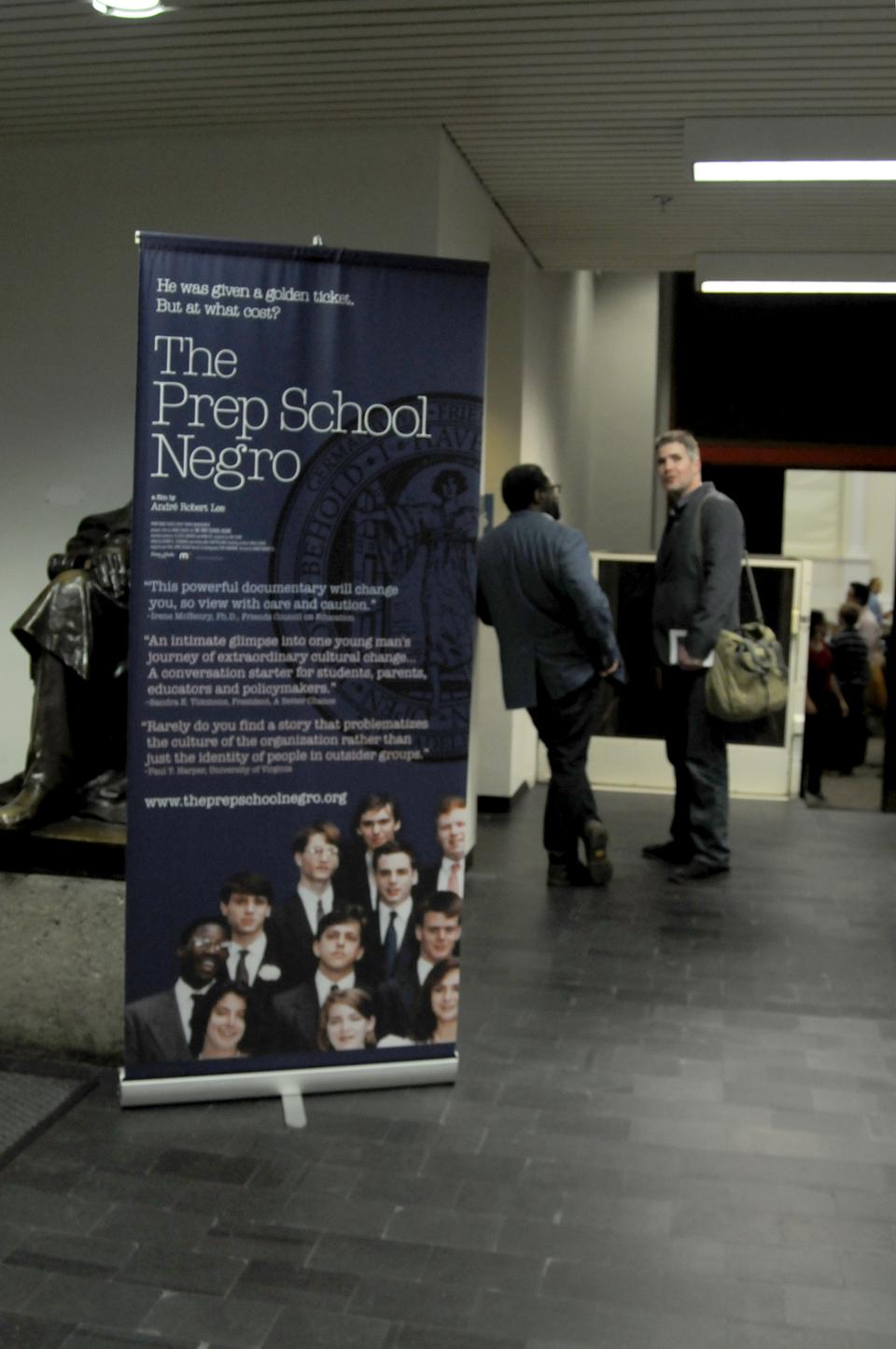
News
Garber Privately Tells Faculty That Harvard Must Rethink Messaging After GOP Victory

News
Cambridge Assistant City Manager to Lead Harvard’s Campus Planning

News
Despite Defunding Threats, Harvard President Praises Former Student Tapped by Trump to Lead NIH

News
Person Found Dead in Allston Apartment After Hours-Long Barricade

News
‘I Am Really Sorry’: Khurana Apologizes for International Student Winter Housing Denials
Director Discusses "The Prep School Negro"

At a screening of the documentary “The Prep School Negro” on Wednesday night, students, faculty members, and the film’s director Andre Robert Lee discussed the questions of what is gained and what is sacrificed by life inside the elite ivory tower.
Lee, who grew up in poverty in Philadelphia, based the film on his own disorienting high school experiences after receiving a full scholarship to Germantown Friends School, one of the most prestigious preparatory schools in the country.
“Though my tuition was covered, I still paid a great cost,” Lee said.
Aubrey J. Walker ’15—an intern at the Harvard Foundation, one of the sponsors of the event—organized the screening after he saw the film more than a year ago.
Walker and Lee met through the Gates Millennium Scholars program, and, when Walker first came to Harvard, he approached the Foundation about screening it.
“It really allowed me to reflect critically upon my own experience and let me know that there are other individuals going through the same thing as myself,” Walker said.
The film focused on the divide between Lee’s life at home and his life in a predominantly white school. Because he saw his culture as often clashing with his education, Lee said he felt like an outsider in both his home life and his school life.
At the screening, he joked about how he would pronounce the word “ask” differently from his classmates and how a classmate once said, “Well, if you axe me, I will bleed.”
After watching the movie, the audience participated in a discussion about the implications of the film and what message they would walk away with. Lee’s remarks stressed the fact that students are not alone.
Dean of Freshmen Thomas A. Dingman ’67 said that the film has broader implications for the diverse members of the Harvard community.
“It relates very much to our fall exercise Community Conversations where we assign the introduction to ‘Whistling Vivaldi,’” he said. “We’re all the time encouraging people to consider who they are, what assumptions they carry, the privileges or special challenges they bring into the community, and how we can develop a community that’s genuinely understanding and mutually respectful.”
Lee said that, while the title of the documentary—“The Prep School Negro”—may not seem politically correct, he chose it to be provocative and express an identity he had felt for a long time.
For Lee, the best part about screening the movie is listening to students share their own stories.
“I had five people come up to me and say ‘Thank you for telling this story. This is my story. You’ve ended my loneliness,’” Lee said. “I was like ‘Yeah home run.’”
—Staff writer Megan B. Prasad can be reached at mprasad@college.harvard.edu.
Want to keep up with breaking news? Subscribe to our email newsletter.
